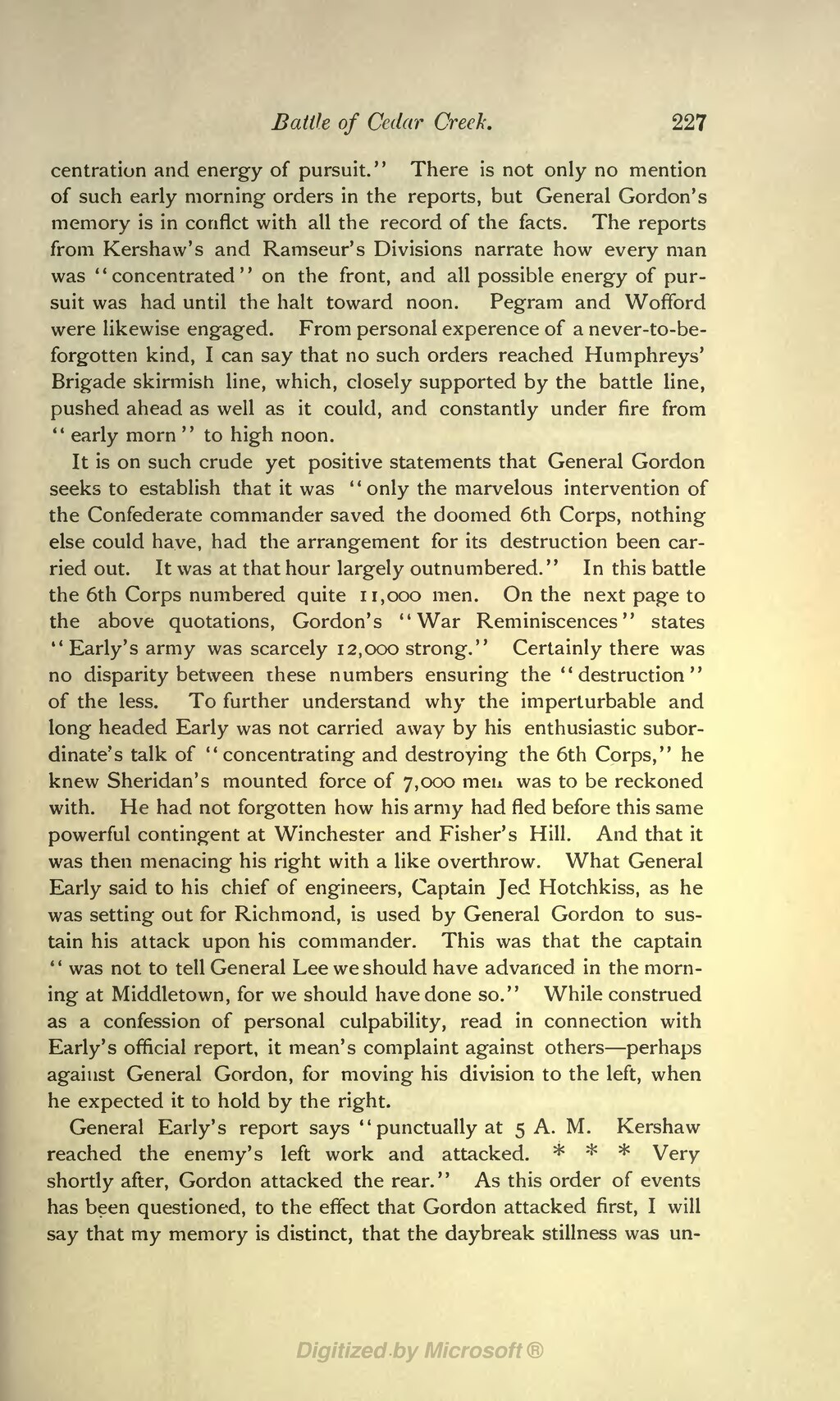Battle of Cedar Creek. 227
centration and energy of pursuit." There is not only no mention of such early morning orders in the reports, but General Gordon's memory is in coriflct with all the record of the facts. The reports from Kershaw's and Ramseur's Divisions narrate how every man was "concentrated" on the front, and all possible energy of pur- suit was had until the halt toward noon. Pegram and Wofford were likewise engaged. From personal experence of a never-to-be- forgotten kind, I can say that no such orders reached Humphreys' Brigade skirmish line, which, closely supported by the battle line, pushed ahead as well as it could, and constantly under fire from " early morn " to high noon.
It is on such crude yet positive statements that General Gordon seeks to establish that it was "only the marvelous intervention of the Confederate commander saved the doomed 6th Corps, nothing else could have, had the arrangement for its destruction been car- ried out. It was at that hour largely outnumbered." In this battle the 6th Corps numbered quite 11,000 men. On the next page to the above quotations, Gordon's "War Reminiscences" states " Early 's army was scarcely 12,000 strong." Certainly there was no disparity between these numbers ensuring the "destruction" of the less. To further understand why the imperturbable and long headed Early was not carried away by his enthusiastic subor- dinate's talk of "concentrating and destroying the 6th Corps," he knew Sheridan's mounted force of 7,000 meii was to be reckoned with. He had not forgotten how his army had fled before this same powerful contingent at Winchester and Fisher's Hill. And that it was then menacing his right with a like overthrow. What General Early said to his chief of engineers, Captain Jed Hotchkiss, as he was setting out for Richmond, is used by General Gordon to sus- tain his attack upon his commander. This was that the captain " was not to tell General Lee we should have advanced in the morn- ing at Middletown, for we should have done so." While construed as a confession of personal culpability, read in connection with Early' s official report, it mean's complaint against others perhaps against General Gordon, for moving his division to the left, when he expected it to hold by the right.
General Early's report says " punctually at 5 A. M. Kershaw reached the enemy's left work and attacked. * * * Very shortly after, Gordon attacked the rear." As this order of events has been questioned, to the effect that Gordon attacked first, I will say that my memory is distinct, that the daybreak stillness was un-
